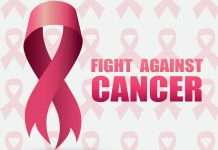
The Lifeline International, an NGO, says access to timely and available crisis support services, could prevent suicides and save lives.
Prof. Taiwo Sheikh, the continental representative of the organisation, made this known in a statement to commemorate the 2023 World Suicide Prevention Day (WSPD) on Sunday in Lagos.
Sheikh expressed concerns that suicide remained a significant issue across the African continent, which is home to six of the ten countries with the highest suicide rates in the world.
The News Agency of Nigeria (NAN) reports that WSPD is marked annually on Sept. 10 to raise awareness around the globe on the possibility of preventing suicides.
The theme of 2023 WSPD is: “Creating hope through action”.
He said that across Africa, insufficient public spending on mental health and suicide prevention was a major barrier to providing assistance to those in need.
He said effective suicide prevention could only take place through a whole-of-society approach that involves the government, civil society organisations and community leaders.
Sheikh said that mental health, including the risk of suicide, affects millions of people across Africa, adding that stigma and cultural misconceptions often compound these issues.
“But the tide is gradually turning as more and more countries recognize the urgent need to address these challenges and promote a more supportive, compassionate and evidence-based environment.
“In 2022, Kenya published its suicide prevention strategy – a landmark achievement and encouragingly, countries across the continent – including Ghana, Malawi and Nigeria – are set to follow this path.
“Tackling suicide and creating environments where individuals feel supported and comfortable enough to seek help requires reshaping attitudes.”, he said.
Sheikh said that LifeLine International and its members were committed to advocating for and supporting policy change, including in the most challenging environments where suicide remains a crime.
He said that talking about suicide, and providing better access to evidence-based interventions, would change the misconceptions and beliefs about suicide, and prevent tragic loss of lives across Africa.
“In Africa, attitudes towards suicide are deeply intertwined with cultural, traditional, and religious beliefs; we need to change these perceptions, address myths, and provide support to those in need.
“Our approach must align with our cultural values to create lasting impact.
“This day of commemoration marks an important opportunity to recognize the lifesaving work of LifeLine International’s six Members in Africa committed to ensuring robust suicide prevention and crisis support resources are available, with greater access and reduced barriers to help-seeking.
“The crisis lines operated on the continent by our members are often among the few support services available to individuals in distress”, Sheikh said.
LifeLine International is a global civil society organisation whose members work to prevent suicidal deaths.
They do this by reducing the stigma of suicide and increasing awareness and support for people in crisis worldwide through the delivery of crisis helplines.
NAN reports that the WHO said every year 703 000 people take their own life and there are many more people who attempt suicide.
The world health organisation also said suicide is a tragedy that affects families, communities and entire countries and has long-lasting effects on the people left behind.
It said suicide does not just occur in high-income countries but is a global phenomenon in all regions of the world.
In fact, over 77 per cent of global suicides, t he WHO said occurred in low- and middle-income countries in 2019.
Suicide rates, the WHO said, are also high amongst vulnerable groups who experience discrimination, such as refugees and migrants; indigenous peoples; lesbian, gay, bisexual, transgender, intersex (LGBTI) persons; and prisoners. (NAN)











